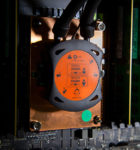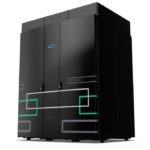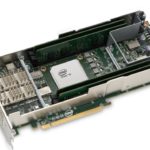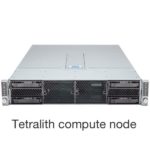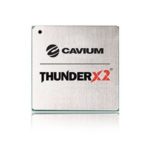In this Chip Chat podcast, Paul Nash from the Google Cloud Platform discusses the industry trends impacting IaaS and how Google Cloud Platform together with Intel are driving innovation in the cloud. “The two companies will collaborate on Anthos, a new reference design based on the 2nd-Generation Intel Xeon Scalable processor and an optimized Kubernetes software stack that will deliver increased workload portability to customers who want to take advantage of hybrid cloud environments. Intel will publish the production design as an Intel Select Solution, as well as a developer platform.”
NVIDIA GPUs Speed Altair OptiStruct structural analysis up to 10x
Last week at GTC, Altair announced that it has achieved up to 10x speedups with the Altair OptiStruct structural analysis solver on NVIDIA GPU-accelerated system architecture — with no compromise in accuracy. This speed boost has the potential to significantly impact industries including automotive, aerospace, industrial equipment, and electronics that frequently need to run large, high-fidelity simulations. “This breakthrough represents a significant opportunity for our customers to increase productivity and improve ROI with a high level of accuracy, much faster than was previously possible,” said Uwe Schramm, Altair’s chief technology officer for solvers and optimization. “By running our solvers on NVIDIA GPUs, we achieved formidable results that will give users a big advantage.”
Intel steps up with 28 core Xeon Processor for High-End Workstations
Today Intel announced that their new 28-core Intel Xeon W-3175X processor is now available. “Built for handling heavily threaded applications and tasks, the Intel Xeon W-3175X processor delivers uncompromising single- and all-core world-class performance for the most advanced professional creators and their demanding workloads. With the most cores and threads, CPU PCIe lanes, and memory capacity of any Intel desktop processor, the Intel Xeon W-3175X processor has the features that matter for massive mega-tasking projects such as film editing and 3D rendering.”
France to Double Supercomputing Capacity with Jean Zay Ai System from HPE
HPE is building a new Ai supercomputer for GENCI in France. Called Jean Zay, the 14 Petaflop system is part of an artificial intelligence initiative called for by President Macron to bolster the nation’s scientific and economic growth. “At Hewlett Packard Enterprise, we continue to fuel the next frontier and unlock discoveries with our end-to-end HPC and AI offerings that hold a strong presence in France and have been further strengthened just in the past couple of years.”
HPC and AI Convergence Take Center Stage for Intel at SC18
Intel has Big Plans at SC18 later this month, many of which are focused on HPC and AI convergence, and the intersections between these two sectors. “HPC is expanding beyond its traditional role of modeling and simulation to encompass visualization, analytics, and machine learning. Intel scientists and engineers will be available to discuss how to implement AI capabilities into your current HPC environments and demo how new, more powerful HPC platforms can be applied to meet your computational needs now and in the future.”
Optimizing HPC Code with Roofline Analysis
In this special guest feature, James Reinders describes why roofline estimation is a great tool for code optimization in HPC. “As a long-time teacher of optimization techniques, I can confidently say that Roofline analysis is a must-have for anyone optimizing for performance. This has not always been the case. As I will explain, today it is an important technique to draw upon when doing performance optimization.”
Intel Beefs up FPGA Line
Today Intel introduced the Intel Programmable Acceleration Card (PAC) with Intel Stratix 10 SX FPGA. The card leverages the Acceleration Stack for Intel Xeon CPU with FPGAs, providing data center developers a robust platform to deploy FPGA-based accelerated workloads.
High Performance Big Data Computing Using Harp-DAAL
Harp-DAAL is a framework developed at Indiana University that brings together the capabilities of big data (Hadoop) and techniques that have previously been adopted for high performance computing. Together, employees can become more productive and gain deeper insights to massive amounts of data.
ClusterVision to build Scandinavia’s Most Powerful Supercomputer
Today Sweden’s National Supercomputing Centre (NSC) at Linköping University announced it has awarded ClusterVision a contract to build its new flagship cluster, Tetralith. Available to all researchers in Sweden, the 4 Petaflop machine will be Scandinavia’s most powerful yet with 60,544 cores based on Intel Xeon.
Cavium ThunderX2 Processor goes GA for HPC and Beyond
Today Cavium announced the General Availability of ThunderX2, Cavium’s second generation of Armv8-A SoC processors. “Integrating ThunderX2 into the HPE Apollo 70 Servers is another example of HPE’s leadership in driving innovation and superior technical solutions into the HPC server market. The ThunderX2 processor provides excellent compute and memory performance that is critical for our HPE Apollo 70 customers and the applications they depend on.”



